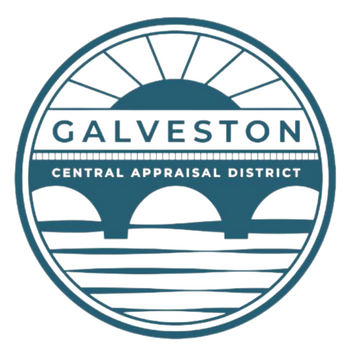How The System Works
The following material has been adapted from the Taxpayers’ Right, Remedies and Responsibilities pamphlet published by the State Comptroller of Public Accounts, and various publications issued by Galveston Central Appraisal District.
The Basics
Property taxes are local taxes. Local officials value your property, set your tax rates, and collect your taxes. However, Texas law governs how the process work.
In Galveston County, property taxes are based on tax rates set by the various local governments (taxing units), which levy a tax, and on the value of the property. The valuation or appraisal process, which is performed by the Galveston Central Appraisal District, serves to allocate the tax burden among property owners.
The property tax provides more tax dollars for local government services in Texas than any other source. Property taxes help pay for public schools, city streets, county roads, police, fire protection, and may other services.
The System
There are three main parts to the property tax system in Texas:
- An appraisal district in each county sets the value of taxable property each year. The chief appraiser is the appraisal district’s chief administrator and is responsible to a board of directors for its operation.
- An appraisal review board (ARB) settles any disagreements between you and the appraisal district about the value of your property.
- Local taxing units, which include the county, cities, school districts, and special districts, decide how much money they will spend each year. This, in turn, determines the tax rate they need to set and the total amount of taxes that you and your neighbors will pay.
The system has four phases:
- Appraisal Phase: valuing the taxable property
- Equalization Phase: protesting the values
- Assessment Phase: adopting the tax rates
- Collection Phase: collecting the taxes
January 1 marks the beginning of property appraisal. What a property is used for on January 1, market conditions at that time, and who owns the property on that date determine whether the property is taxed, its value, qualifications for exemptions, and who is responsible for paying the tax.
Between January 1 and April 30, the appraisal district processes applications for tax exemptions, agricultural and timber appraisals, and other tax relief. Prior to scheduling a hearing for the appraisal review, one of the district’s staff will review the property with the property owner. Often problems are solved at this informal level. If for some reason the property owner and the district staff cannot reach an agreement, a hearing will be scheduled with the appraisal review board. Around June 1, the appraisal review board begins hearing protests from property owners who believe their property values are incorrect, or who feel they were improperly denied an exemption or an agricultural/timber appraisal. The ARB is an independent panel of citizens responsible for handling protests about the appraisal district’s work. When the ARB finishes its work, the chief appraiser gives each taxing unit a list of taxable property known as the appraisal roll.
Usually in September or October, the elected officials of each taxing unit adopt tax rates for their operations and debt payments. Typically, each property is taxed by several taxing units. For example, every property in Galveston County is taxed both by the county and by a school district. Taxes may also be payable to a city or special district, including such entities as municipal utility districts, rural fire protection districts, junior college districts, and others.
Tax collection starts in October and November as bills go out. Taxpayers have until January 31 of the following year to pay their taxes. On February 1, penalty and interest charges begin accumulating on most unpaid tax bills. Taxing units may start legal action to collect unpaid property taxes once they become delinquent.
Does Texas have a state property tax?
No. Texas has only local property taxes levied by local taxing units. The state does not have current local tax records on each property and its ownership and does not set your property’s value for property taxes.
Who governs a local county appraisal district?
A local board of directors governs the appraisal district.
How can the State Comptroller help local governments and taxpayers?
The Comptroller’s office may provide technical advice to local governments and taxpayers on property tax issues, but it cannot intervene in local tax matters.
Which local taxing units may tax my property in Texas?
All taxable property will pay county and school taxes. If the property is located inside a city’s boundaries, you also may pay city taxes. Special taxing units-junior college, hospital district, road district and others-may also tax your property.
